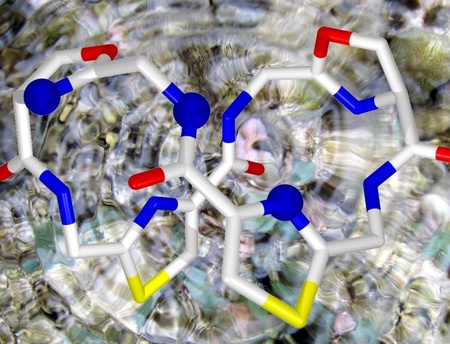PhD Studentship in Chemical Biology
Introduction. Cyclic peptides are an exciting and underexplored group of natural products with unique biological properties. Their biosynthesis offers simple and novel ways of generating variants that will expand the activities and applications of these compounds. Many cyclic peptides are used in current therapy (e.g. cyclosporin for organ transplants, daptomycin for bacterial infections) or are in advanced clinical trials such as Aplidin and Irvalec (Pharmamar, both in phase 2 for cancer). Cyclic peptides are particularly successful in modulating challenging targets such as protein-protein interactions. In comparing macrocyclic peptides to their linear variants, their reduced conformational flexibility means they have improved target affinity, greater selectivity and specificity. Cyclic peptides also have improved physicochemical properties, membrane permeability, cellular activity and are resistant to proteases and other metabolic enzymes giving them better pharmacokinetic properties. Indeed one can rationally design novel cyclic peptides in silico that could have promising therapeutic properties, but there are currently no efficient methods of manufacture. Therefore low-cost catalytic methods to produce them are much in demand. In this project we will expand the scope of a peptide macrocyclase whose crystal structure has recently been resolved. This enzyme can cyclise linear peptides with 6-11 amino acid residues and can accept non-natural substrates.
Aims of the project: To define the overall utility of this enzyme in organic synthesis by: improving the catalytic rate of the enzyme; exploring related enzymes from other organisms; replacing residues/groups in the substrate to explore the enzyme’s flexibility; generating bioactive compounds.
Training Benefit to the Student: This is a cross-disciplinary project involving elements of molecular biology and synthetic peptide chemistry. From the biological side you will gain experience in cloning, site directed mutagenesis, protein expression and purification as well as using the purified enzymes to carry out reactions on synthetic substrates. You will learn how to measure catalytic rates of the macrocyclases using biochemical techniques and LC-MS analyses. You will gain experience in peptide synthetic methodology as well as analysis of the linear and macrocyclic peptides generated by NMR and MSn. You will carry out the biological work in the Institute of Medical Sciences, which is fully equipped for molecular biology and the Marine Biodiscovery Centre which contains all the facilities for the synthetic and analytical aspects of the project.
Supervision Team: Marcel Jaspars, Laurent Trembleau and Wael Houssen
(Contact: m.jaspars@abdn.ac.uk)
Marine Biodiscovery Centre, Department of Chemistry & Institute of Medical Sciences, Aberdeen University
Sponsors: Astra-Zeneca UK and the University of Aberdeen
Start date: 1 Feb 2014
Duration: 42 Months
Eligibility: EU applicants only
Applications via online system.
You may wish to contact Marcel Jaspars to discuss the project.


